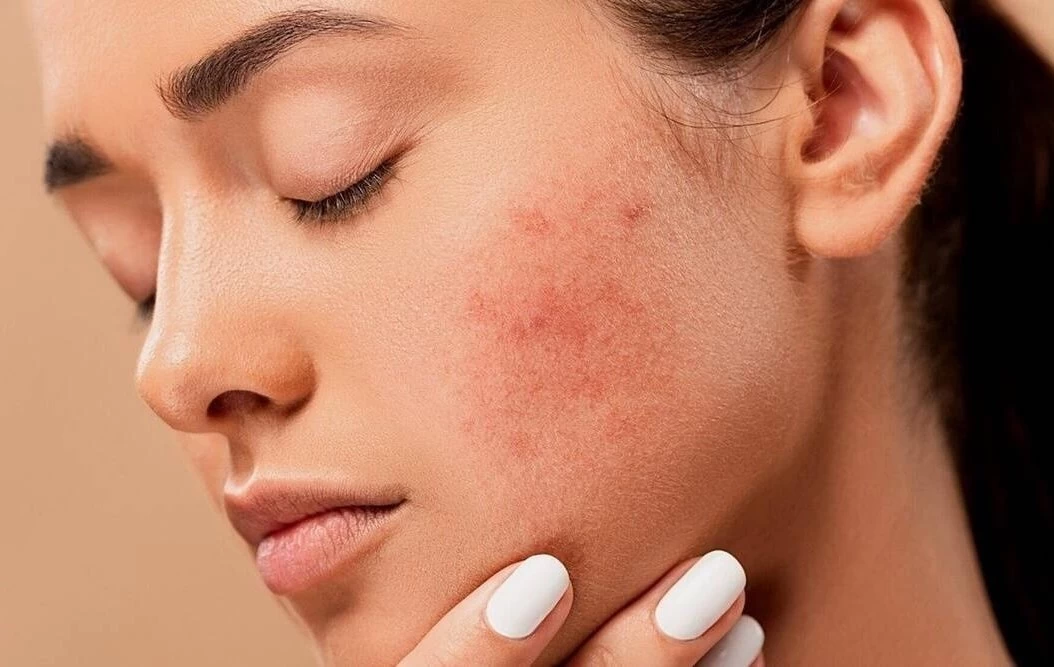

Causes of Skin Pigmentation
At various times, many people suffer from skin pigmentation, which can severely affect their appearance. Therefore, understanding the causes of skin pigmentation and how to treat it—particularly through a helpful homemade cream—is important.
In this article, we’ll discuss the causes of skin pigmentation and how it can be treated with an effective homemade cream.
Definition and Types of Skin Pigmentation
Before diving into the causes of skin pigmentation, let’s first understand what skin pigmentation is.
Skin pigmentation refers to changes in skin color, which typically occur when the body produces excess melanin—the pigment responsible for giving skin its natural color. When melanin production increases, some areas of the skin may appear darker than others. These dark spots often appear brown or black. The types of pigmentation include:
Freckles
These appear as small brown or red spots, usually on the face or other areas exposed to sunlight.
Melasma
Characterized by brown or gray patches, typically appearing on the forehead, cheeks, nose, and upper lip. It often requires a preventive homemade cream for treatment.
Sunspots
These are flat, brown or black spots caused by long-term sun exposure. Common areas include the face, hands, and arms.
Post-inflammatory Hyperpigmentation (PIH)
These dark spots appear after the skin heals from inflammation, such as acne or rashes.
Vitiligo
In some cases, the skin loses pigment in certain areas, resulting in white patches distinct from the natural skin tone.
Pityriasis Alba
This presents as light-colored spots, especially on the face of children and young adults. They may result from genetics or excessive sun exposure. Though usually harmless, they can cause concern when they appear on visible areas like the cheeks or forehead.
Causes of Skin Pigmentation
Skin pigmentation can stem from several causes, many of which can damage the skin. The main causes include:
Scars and Acne Marks
A common cause of pigmentation is dark spots that appear after acne heals, especially if pimples are picked or not treated properly. A homemade cream containing aloe vera or green tea oil may help reduce these marks over time.
Excessive Sun Exposure Without Protection
Constant exposure to sunlight without sunscreen is a major cause of pigmentation, as UV rays stimulate excess melanin production. A homemade cream with yogurt and lemon can help lighten sun-induced dark spots.
Hormonal Imbalances
Hormonal changes—especially during pregnancy or from using birth control—are a common cause among women. Applying a homemade cream rich in Vitamin E and rose water can help soothe and even out the skin tone.
Unhealthy Diet
Consuming high amounts of sugar and preservatives can lead to internal inflammation that reflects on the skin. Along with a healthier diet, a homemade cream with antioxidants like honey and turmeric can enhance skin radiance.
Genetics and Aging
As we age, the skin’s ability to regenerate slows, making pigmentation more likely, especially if there’s a genetic predisposition. Though it can't be entirely prevented, its effects can be reduced using a homemade cream with Vitamin C and yogurt.
Chronic Health Conditions
Certain diseases like autoimmune disorders or digestive issues can affect the skin and cause pigmentation. Alongside medical treatment, a homemade cream rich in natural oils and anti-inflammatory ingredients can support the skin.
Certain Medications
Medications like antidepressants or specific antibiotics may alter skin color. These side effects can be relieved using a homemade cream with cucumber water and almond oil.
Skin Diseases
Conditions like eczema, psoriasis, or contact dermatitis may leave behind dark spots due to chronic inflammation or persistent itching.
Mesostetic’s Role: Dermamelan Cream
To address acquired pigmentation problems, Mesostetic offers Dermamelan Cream, which primarily works to reduce pigmentation imperfections and restore even skin tone.
The Link Between Psychological Stress and Skin Pigmentation
Psychological stress and excessive tension are scientifically proven contributors to skin pigmentation. Stress triggers hormones like cortisol, which can increase skin inflammation and sensitivity. It can also worsen conditions like acne, psoriasis, eczema, and viral warts, in addition to causing dryness, dullness, and a loss of natural glow.
Helpful Tips to Combat Stress-Induced Pigmentation
To maintain healthy skin:
Cleanse your skin daily and use gentle skincare products suitable for your skin type, especially if it’s dry.
Always remove makeup before sleeping to let your skin breathe and regenerate.
Moisturize regularly and use a protective homemade cream.
Exercise at least 10 minutes daily to improve blood circulation and detoxify your body.
Adopt stress-relieving practices such as walking, meditation, or breathing exercises.
Ensure you get enough sleep—at least 7–8 hours per night—as sleep helps renew and improve skin appearance.
Homemade Cream for Treating Skin Pigmentation
To treat pigmentation issues, Mesostetic offers Dermamelan Treatment, a high-performance solution designed to reduce dark spots and even out skin tone. It is effective in treating melasma and hyperpigmentation, delivering noticeable results by reducing melanin production. Over time, it improves the skin’s glow and texture. For best results, use it regularly under expert supervision.
FAQs About Homemade Creams and Skin Pigmentation
Is skin discoloration a disease?
Not all cases of skin discoloration are diseases. While conditions like vitiligo, psoriasis, and melasma are classified as pigmentation disorders, others like freckles are natural variations in skin color due to melanin concentration and usually don’t require treatment.
Can the skin return to its natural color?
After burns or injuries, skin discoloration may occur. These changes are usually temporary and may take several days to improve.
Can homemade creams treat pigmentation?
Yes, some homemade creams with natural ingredients like lemon and honey can help reduce pigmentation. However, results may vary and take time.
What are the causes of skin pigmentation?
Pigmentation may result from excessive sun exposure, hormonal changes, or certain health conditions like dermatitis.
Conclusion
In conclusion, skin pigmentation has multiple and diverse causes, which increases the likelihood of developing it. Therefore, it’s recommended to use Dermamelan Treatment by Mesostetic to maintain clear skin and a natural tone—free from embarrassment or discomfort—while prioritizing your skin health.
News & Related Articles





